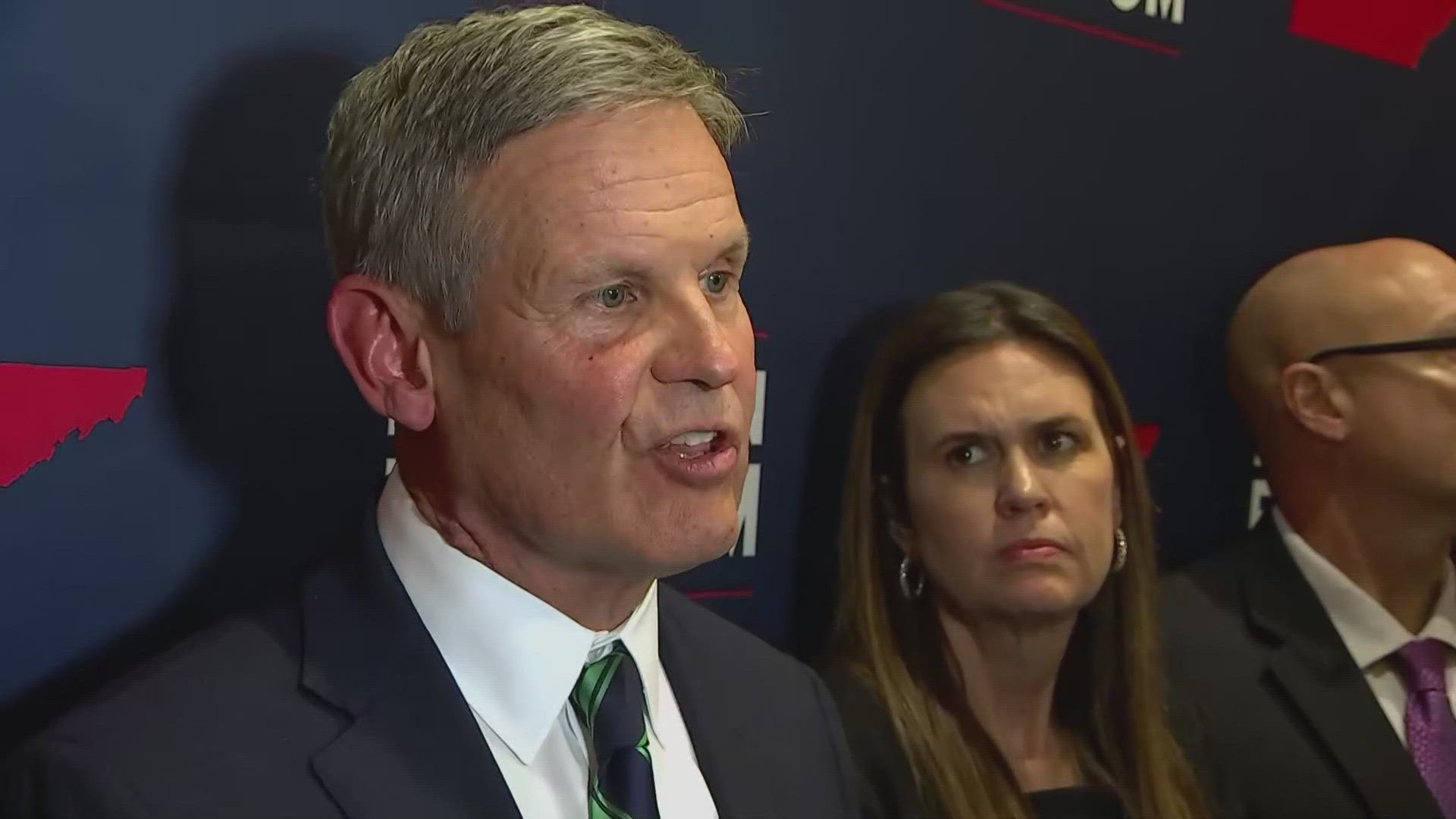KNOXVILLE, Tenn. — Tennessee Governor Bill Lee announced a proposal to expand Tennessee's school voucher program beyond the three school districts where it's currently active in an event on Tuesday afternoon.
Lee's proposal would distribute funds, about $7,000 in public funding, to families with students who want to attend private school. Those funds would go to 20,000 students statewide, in the 2024-2025 school year, if the plan is approved.
Half of those students would have to qualify based on their family's income, whether they have a disability or if they're eligible for the state's ESA program.
In the 2025-2026 school year, the program would be open to any student, in any school district in Tennessee.
In 2019, the Tennessee General Assembly created a pilot program for school vouchers in two counties — Shelby County and Davidson County. This year, the General Assembly expanded the program to Hamilton County.
Rep. Jason Zachary (R-Knox County) was the deciding "yes" vote, in 2019, when the program was first proposed. Zachary said he agreed to vote "yes" if Knox County was left out of the program. At the time, Zachary told WBIR he didn't feel Knox County needed the program because the district didn't have any failing schools.
"There was much involved in that, but primarily the fact that Knox County ended up being roughly $4-5 million short of where they thought they were going to be," Zachary said. "I simply told the governor and our leadership team that if Knox County cannot be made whole, I simply can't support moving forward with any school choice program in Knox County."
Now, like other Republicans in the House, Zachary said he supports school vouchers because they help overachieving students in failing schools, though the Knox County Representative said the devil is in the details on the Governor's proposal.
"There's even a few schools here where parents feel like their child could have a better outcome and better opportunity, if they simply had the resources to move them to a different school," Zachary said. "We should be able to take our tax dollars that we pay in for our students and be able to take those dollars with the student, to get a better educational outcome."
Former teacher Rep. Gloria Johnson (D-Knoxville) said the governor's proposal would hurt students in public schools.
"The voucher scam is going to do unimaginable destruction to our public schools," Johnson said. "They don't teach the same curriculum that our state requires public schools to teach. They don't have to have certified teachers."
Johnson, a former special education teacher, said private schools wouldn't have to accept students with special needs like public schools do.
"Remember, when they say school choice, they're acting as if it's the parent's choice. It's not the parent's choice. It is literally the school's choice of who they take," Johnson said.
Senator Becky Duncan Massey (R-Knox County) voted against the school voucher proposal in 2019 but said she would talk to her constituents and study the governor's proposal before deciding this year.
Knox County Senator Frank Niceley (R-Strawberry Plains) said he would not support the governor's proposal because he doesn't trust the government. Niceley said he worries if private schools get government funding, the state would get to decide what those schools teach.
Senator Richard Briggs (R-Knoxville) said he does not support public money spent on private schools.
"The Supreme Court has already decided that you cannot deny any rights or vouchers or anything to students just based on their nationality," Briggs said. "Which means, we would have to give them to Chinese students that are here, we would have to give them to the Arabic religious schools that are here that may or may not be teaching American values."
Briggs said Knox County has a very good school system and he doesn't support expanding the program to this county.
"I just don't see why vouchers are needed," Briggs said.
Knox County Representatives Dave Wright, Justin Lafferty, Elaine Davis and Michele Carringer — all Republicans — did not respond to WBIR's request for comment.

